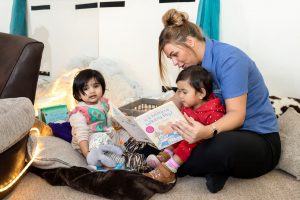 This week the Education Secretary has spoken about social mobility, focusing on some interesting areas which he thinks will make a difference.
This week the Education Secretary has spoken about social mobility, focusing on some interesting areas which he thinks will make a difference.
The first, and most reported, is addressing the issue of the very early years of family life – reading to young people, helping them acquire language and arriving at school with basic literacy. This will make an impact, although it is far more easily said than done. A series of Apps for the ubiquitous tablets of the young may do the trick, and a call has been made to design and find the best. Simply talking and nurturing the under 5’s would also work but is not easy with modern work patterns and in some cases the literacy of parents. None the less we must wish this initiative well. Many voluntary groups also enable older people to read to the young and that both helps and bridges the generations.
A second is research into the developmental power of extra-curricular activity. There can be no doubt that this will find that it improves the life chances, resilience, wider interests and aspiration of the young people. This is why independent schools have always valued this activity not as an add on but as an essential. However, here too there are paradigm shifts required. If wider interests are valued they do, however arranged, sometimes interfere with the curriculum. So measuring the outcome of schooling by results is bound to mitigate against extra-curricular activity. One solution might be to measure the value of those activities, but let us remember the very strong record we have in schools of destroying the intrinsic value of anything we try to measure and make people accountable for!
Finally, there will be research to provide a baseline of life chances for those on free school meals, to show any improvement, find good case studies and identify where opportunity has been missed. In this I just hope the teams remember the relatively significant numbers of free school meal pupils in independent schools. They do not get those free meals of course, but they are the fully funded bursary pupils to be found there. Government has now acknowledged that boarding schools can provide life chances for some funded by the state. Is it time to remember that the independent sector offered the Government 10,000 good school places, which could be awarded to free school meal pupils of the right ability, at the cost it has for a state school place? That offer still stands and since 2016 there is yet to be a response. If we wish to start making a difference for good, why not start in that small way to make some progress.

Leave a Reply